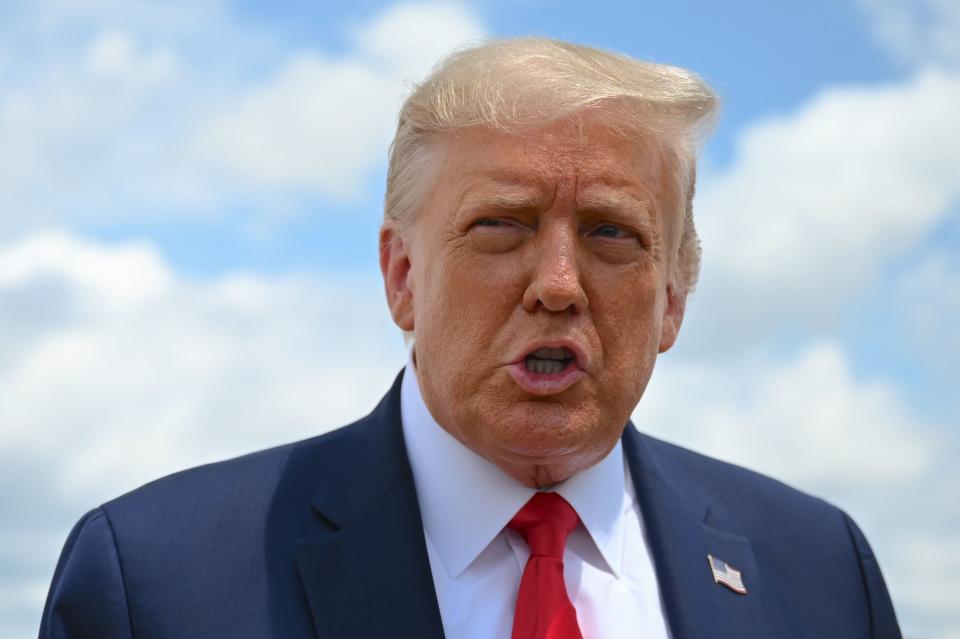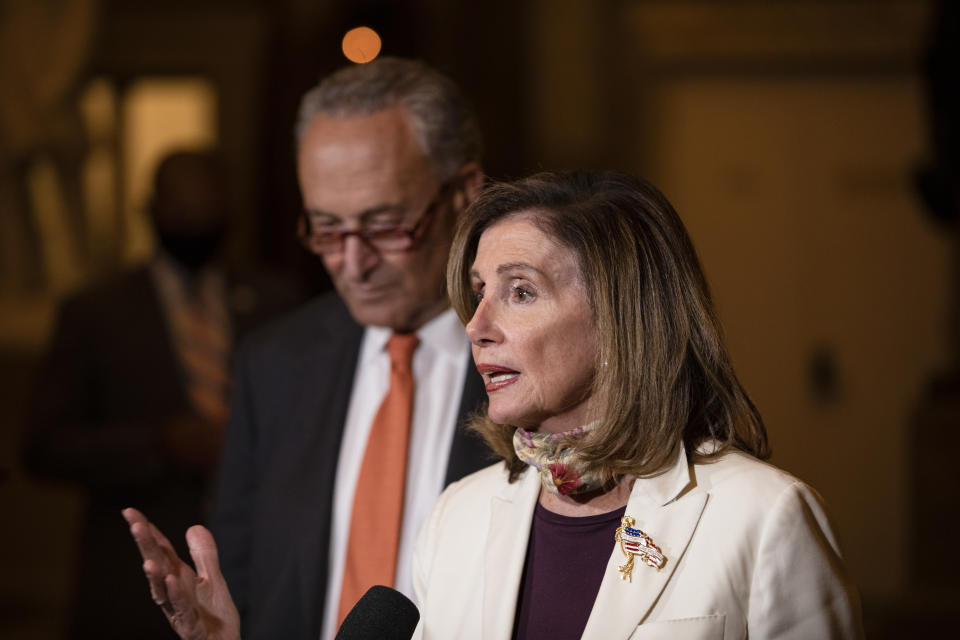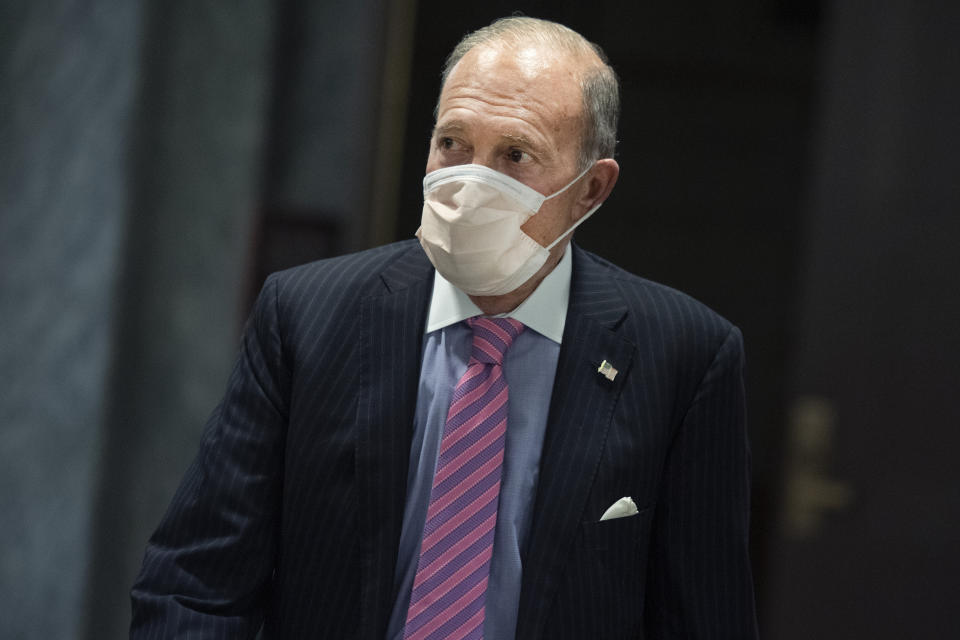Coronavirus stimulus: White House says 'stay tuned' for President Trump executive orders as negotiations crumble
Negotiations between Democrats, Republicans, and the White House over a new stimulus bill are at a stalemate after two weeks, and President Trump is now expected to attempt to bypass the need for a deal by enacting executive orders on various issues.
“Stay tuned,” White House Economic Adviser Larry Kudlow told Bloomberg News on Friday when asked about executive powers. “You can be assured [the president] will be out and about today, and probably tomorrow, talking about this.”
Kudlow later added that executive orders would involve three big provisions of any stimulus bill: “The evictions, the payroll tax, unemployment reform.” Trump’s authority to sign executive orders on those provisions has been questioned not only by Democrats but also by Kudlow, who previously said that the extension of the unemployment benefits “requires an act of Congress.”

Negotiations over the last two weeks have largely involved House Speaker Nancy Pelosi (D-CA), Senate Minority Leader Charles Schumer (D-NY), Treasury Secretary Steven Mnuchin, and White House Chief of Staff Mark Meadows. Talks on Friday were unsuccessful.
"Unfortunately we did not make any progress today,” Mnuchin told reporters, while Schumer called Friday’s negotiations “a disappointing meeting.”
Democrats previously conceded that the president could act on evictions but noted that any batch of executive orders would be narrow in scope when compared to legislation passed by Congress.
“The one thing the president can do is to extend the moratorium,” Pelosi said at a press conference on Thursday. “And that would be a good thing if there's money to go with it.”

On the unemployment benefits issue, experts say that the president likely doesn’t have the authority to act.
“My understanding about unemployment is that the administration cannot unilaterally create a policy to pay people and that it has to be done through legislation,” Gbenga Ajilore, a senior economist at the Center for American Progress, a non-profit for public policy research and advocacy, told Yahoo Money.
As for a payroll tax cut, experts have said that he has limited authority to postpone the employee side of the payroll but not to suspend it.
“Congress has to pass tax laws, not the president,” Seth Hanlon, a tax-policy expert at the Center for American Progress, previously told Yahoo Money. “He has limited authority to postpone tax filing and payment deadlines, in instances of disasters.”
‘We’ll take down a trillion, if you add a trillion in’
The disagreements between the two parties are about the overall funding for the bill — the Democrats’ HEROES Act is worth over $3 trillion while the GOP’s main proposal is worth $1 trillion — as well as some of the stimulus provisions involving the inclusion of liability protection for business and schools, additional unemployment benefits that expired after July, and a federal eviction moratorium that expired in July.
“There’s a lot of areas of compromise," Mnuchin said after Friday's meeting. "I think if we can reach an agreement on state and local and unemployment, we will reach an overall deal. And if we can’t we can’t.”
Read more: Here’s what you need to know about unemployment benefits eligibility
Pelosi and Schumer said that they would be willing to spend $1 trillion less than the HEROES Act would provide if Republicans agreed to spend around $2 trillion in any deal.
“Yesterday, I offered to them: ‘We’ll take down a trillion, if you add a trillion in,’” Pelosi said on Friday morning. “They said: ‘Absolutely not.’”
After Friday’s talks, Pelosi told reporters: "I’ve told them ‘come back when you are ready to give us a higher number.”

Another issue with the president’s executive orders is that he has to fund them with money that has already been approved by Congress. Kudlow suggested on Friday that they could use leftover funds from the CARES Act, though that would like be less than the $1 trillion originally proposed by Republicans.
“Probably as much as a trillion dollars was obligated but unspent through the March CARES Act,” Kudlow told Bloomberg News. “We’d be able to repurpose it.”
Denitsa is a writer for Yahoo Finance and Cashay, a new personal finance website. Follow her on Twitter @denitsa_tsekova.
Read more:
Rich Americans' pullback in spending is hurting the economic recovery
Even as GDP tanked, personal income grew thanks to government support
Read more personal finance information, news, and tips on Cashay
Follow Yahoo Finance on Twitter, Facebook, Instagram, Flipboard, SmartNews, LinkedIn, YouTube, and Reddit.

 money
money 

